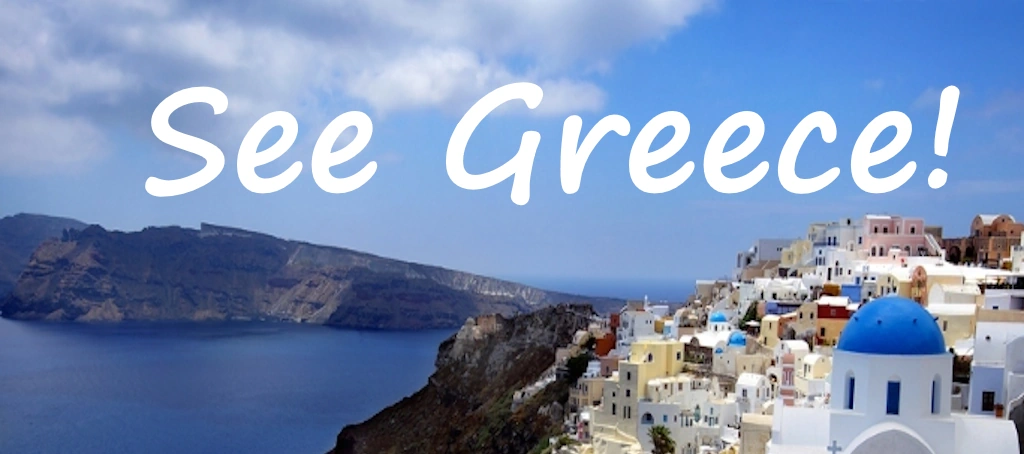The See Greece guide to the island of Kasos with a brief history and travel information on how to get there by ferry or by air and what to see and do.

Introduction
Kasos is a small, rugged island in the Dodecanese, located between Crete and Karpathos in the southeastern Aegean Sea. With a population of around 1,000 people, it remains one of Greece’s least touristy destinations, offering an authentic glimpse into traditional island life. Known for its dramatic landscapes, unspoiled beaches, and rich maritime history, Kasos is ideal for travelers seeking tranquility, natural beauty, and cultural heritage.
Location

Kasos lies approximately 27 miles southwest of Karpathos and about 50 miles east of Crete. It is the southernmost island in the Dodecanese group and covers an area of just 49 square kilometers. Despite its small size, the island boasts a varied terrain of rocky hills, deep gorges, and secluded coves.
A Brief History of Kasos
Kasos has a long and turbulent history, shaped by its strategic position along ancient maritime routes. The island was first mentioned in Homer’s Iliad as participating in the Trojan War. Throughout antiquity, it was influenced by the Minoans, Dorians, and later the Romans.
During the Byzantine era, Kasos became a minor naval base, and by the Middle Ages, it was frequently targeted by pirates. In the 16th century, the island fell under Ottoman rule but retained a degree of autonomy due to its strong seafaring tradition. Kasos played a significant role in the Greek War of Independence (1821–1829), but in 1824, the Ottomans brutally suppressed the island, destroying its fleet and killing much of the population.
After the Balkan Wars, Kasos became part of Italy in 1912 before finally reuniting with Greece in 1948. Today, the island’s economy relies on fishing, agriculture, and remittances from its seafaring diaspora.

What to See and Do on Kasos
1. Explore Fry, the Island’s Capital
Fry (also spelled Chryssopolitissa) is the main port and capital of Kasos. Its charming whitewashed houses, narrow alleys, and traditional tavernas create a picturesque setting. Key sights include:
– Agia Triada Church – A beautiful 19th-century church with a distinctive bell tower.
– The Maritime Museum – Showcasing Kasos’s seafaring history with model ships, nautical instruments, and historical documents.
– The Old Windmills – Located on a hill above Fry, these restored windmills offer panoramic views of the harbor.
2. Visit the Traditional Villages
– Agia Marina – The second-largest village, featuring traditional architecture and the impressive Agios Spiridonas Church.
– Panagia – A hillside village with stunning views and the Panagia Church, known for its icon of the Virgin Mary.
– Polis – A quiet village with remnants of ancient settlements, including traces of a Minoan-era town.
3. Discover Kasos’s Beaches
Kasos has several unspoiled beaches, often accessible only by dirt roads or boat:
– Ammoua – A sandy beach with turquoise waters, ideal for swimming.
– Helatros – A secluded pebble beach surrounded by cliffs.
– Emporeios – A small fishing hamlet with a rocky shore and crystal-clear waters.
4. Hike the Island’s Trails
Kasos is perfect for hiking, with well-marked paths leading through rugged landscapes:
– Fry to Agia Marina – A scenic route passing through olive groves and old stone walls.
– The Cave of Ellinokamara – An ancient cave with archaeological significance, believed to have been a Minoan sanctuary.
5. Taste Local Cuisine
Kasos is known for its hearty, traditional dishes, many influenced by its maritime culture:
– Makarounes – Handmade pasta served with caramelized onions and local cheese.
– Dolmadakia – Stuffed grape leaves, often filled with rice and herbs.
– Fresh Seafood – Octopus, lobster, and grilled fish are staples in local tavernas.
Best Time to Visit
The best time to visit Kasos is between May and October, when the weather is warm and dry. July and August are the hottest months, with temperatures reaching 30°C (86°F), but the island remains less crowded than other Greek destinations. Spring (April–May) and early autumn (September–October) are ideal for hiking and exploring, with milder temperatures and fewer tourists.

How to Get to Kasos
By Air
Kasos has a small airport (Kasos Island Public Airport, KZS) with seasonal flights operated by Olympic Air from Athens (1-hour flight). Flights are limited, so booking in advance is recommended.
By Ferry
Ferries are the most common way to reach Kasos, with connections from:
– Piraeus (Athens) – A long journey (18–20 hours) via larger ferries, usually stopping at other Dodecanese islands.
– Crete (Sitia) – A shorter 3–4 hour crossing, available in summer.
– Karpathos – Regular ferries make the 1.5-hour trip between the two islands.
Ferry schedules vary by season, with more frequent services in summer.





















